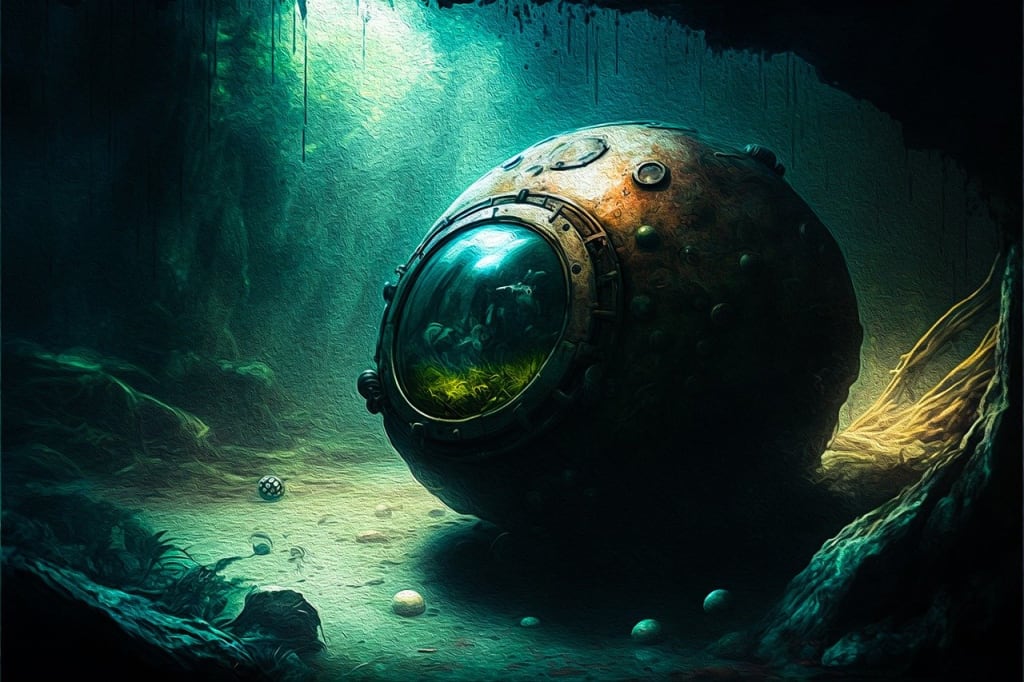The Profound Depths of the Ocean: Unveiling Earth's Final Frontier
Journey to becoming a writer

The Earth's oceans, covering over 70% of the planet's surface, have long fascinated scientists and explorers with their mysterious depths. The deep ocean, which extends beyond the continental shelf, comprises the most enigmatic and least-explored regions on Earth. In this essay, we will delve into the depths of the ocean, exploring its extreme dimensions, the biodiversity it harbors, its geological significance, and the remarkable opportunities and challenges associated with its exploration and preservation.
The deep ocean, also referred to as the abyssal zone, is an immense expanse of seawater that begins at approximately 200 meters (656 feet) below the ocean's surface and extends down to the Earth's deepest point, Challenger Deep, in the Mariana Trench, which plummets to a staggering depth of approximately 10,994 meters (36,070 feet). The profundity of the deep ocean is characterized by its eternal darkness and extreme pressure, which is over 1,000 times greater than at the ocean's surface, rendering it one of the planet's most inhospitable environments.
Despite the extreme conditions of the deep ocean, it hosts a breathtaking diversity of life forms, many of which have evolved remarkable adaptations to survive in this harsh environment. Bioluminescent organisms provide ethereal illumination in this perpetual darkness, unveiling a surreal world of creatures that challenge human imagination. Among the most iconic deep-sea creatures are the giant squid, the anglerfish, and the fangtooth, each possessing unique features and adaptations that allow them to thrive in the abyss.
Beyond the individual species, the deep ocean houses complex ecosystems that continue to be studied and understood. Hydrothermal vent communities, for example, are teeming with previously undiscovered species, offering valuable insights into extremophile organisms and their adaptations to extreme temperatures and pressures. Cold seeps, on the other hand, foster symbiotic relationships between bacteria and deep-sea organisms, contributing to the global carbon cycle and demonstrating the interconnectedness of life on Earth.
The deep ocean is not only a haven for marine life but also plays a crucial role in the geological processes that shape our planet. It is a vast repository of geological records, containing evidence of Earth's evolutionary history and dynamic processes. Sediments that accumulate on the ocean floor provide insights into past climate conditions and Earth's tectonic history, while underwater mountain ranges and deep trenches reveal the complex nature of our planet's lithosphere.
The abyssal plains, characterized by flat and featureless expanses, accumulate sediments from rivers and erosion, acting as a vital repository of terrestrial materials. These sediments hold clues to Earth's environmental history and are critical for understanding past climate change and the history of life on our planet.
While the deep ocean holds immense promise for scientific discovery and innovation, it also faces numerous threats and challenges. Overfishing, destructive fishing practices, and deep-sea mining are putting tremendous pressure on these fragile ecosystems. The impacts of climate change are also altering deep-ocean temperatures and circulation patterns, potentially disrupting these vital processes. Conservation and sustainable management of deep-sea resources are essential to protect these ecosystems for future generations.
Exploration and research in the deep ocean have been made possible by remarkable technological advancements, including remotely operated vehicles (ROVs) and autonomous underwater vehicles (AUVs). These sophisticated tools enable scientists to explore the ocean's depths and document its biodiversity, as well as collect geological samples. Collaboration among governments, scientists, and organizations is essential to promote conservation and the responsible use of deep-sea resources.
The deep ocean, with its profound mysteries and astounding biodiversity, represents an untapped frontier for scientific exploration and discovery. Its ecological significance, potential for biotechnological innovation, and critical role in climate regulation make it an area of vital importance for humanity. However, it also faces numerous challenges that require careful stewardship and conservation efforts to protect these unique and fragile ecosystems.
As we continue to unveil the secrets of the deep ocean, we must ensure that our discoveries benefit both our scientific understanding and the long-term sustainability of this precious realm. The profound depths of the ocean remain a testament to the resilience and adaptability of life on Earth, as well as a reminder of our responsibility to protect and preserve the wonders of the abyss for generations to come.






Comments
AnanymousSal is not accepting comments at the moment
Want to show your support? Send them a one-off tip.